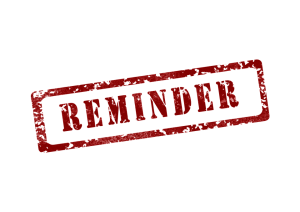
Journaling is a powerful practice. But like any practice, it only works if you work it. That means your goal is to do consistently, not just when you feel like it. You don’t have to carve out a lot of time, but you will need to carve out some time.
If you’re not sure how to make the time, a coach can help you rethink and redesign your day.
As I mentioned in an earlier post, journaling allows you to document ideas and work through hunches. It allows you to keep track of otherwise fleeting, yet potent thoughts, and it also improves your thinking. These benefits accrue to the degree you can make journaling a habit.
Plan Ahead
Building a habit can feel daunting, so it’s important you set yourself up for success. Consider a consistent time or trigger that will alert you to journal. For instance, set a recurring meeting with yourself for first thing in the morning or perhaps as you close the day.
You might also consider your work ebbs and flows. Look ahead several days, and see if you have short breaks between longer meetings. Block 15 minutes for yourself and commit to journaling during that time. Midday journaling is more difficult for some – especially those without as much control over their calendars. The important part here is to plan ahead and schedule reminders to keep you on track.
Defeat Decision Fatigue
I recommend clients go so far as to picture where you will journal and make sure your notebook or favorite app is handy at the time and place you’ll need it. As you go through the day, each decision you make takes a toll on your brain. As a result, you become more likely to do what’s easiest, rather than what’s best.
Having a clear plan of action in place minimizes your chance of being foiled by decision fatigue. Journaling by hand is great for slowing down and processing, but digital journalingis certainly a viable choice as well. So whether a special colored pen or a stylus, select your tool ahead of time and have it ready.
Silence the Inner Critic
Journaling allows you a moment of quiet honesty. Since you’re journaling for yourself, not for a broader audience, give your inner critic the day off. This is not the time for judgments about spelling, grammar, formatting or content. Avoid editing. Really. You’re thinking on the page, and analyzing those thoughts. You’re not trying to win a contest or create a post to display on Pinterest. Don’t stifle your thinking. Just write.
This is your leadership development time. Use it to better understand and nurture the leader within.
What do you think? Are you making a routine to journal? Are you seeing benefits from journaling? Let me know what you think.

